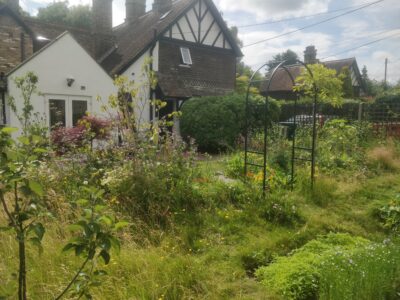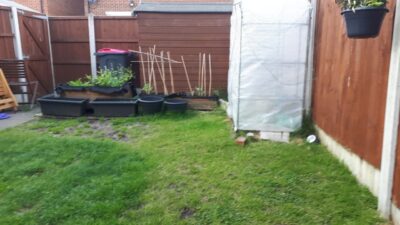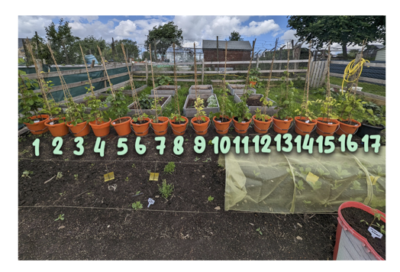With a little creativity and planning, you can grow fresh, delicious vegetables even in small spaces. Whether you have a courtyard, windowsill, or pots, take advantage of vertical space, raised beds, containers, and hanging baskets to make the most of your available space. A constant supply of fresh herbs and vegetables is just a few steps away!
Cottage Garden Style
Cottage gardens were originally designed to combine vegetables and ornamental plants, making the most of every spare pocket of space. This style of gardening can make harvesting a bit more challenging, but it requires less preparation time. Vertical space is also a prime opportunity in smaller spaces.
Vertical Growing
Climbing vegetables such as runner beans can be trained up bamboo cane wigwams, which can also provide useful screening and shelter for other plants. Trailing fruit and vegetables like cucumbers and squashes can be trained over existing structures like a fence. Warm, sunny walls can act like radiators, absorbing the sun’s heat and allowing fruit like peaches to ripen effectively. The stunning spring blossom is an added bonus that will feed the soul as well.
Raised Beds
Raised beds increase the volume of topsoil and the density of planting, allowing for more produce per square meter. Fill them with cut-and-come-again favourites like chard and rocket for a steady supply of fresh greens, and herbs that will add a fresh note to long-life foods and valuable nutrients. Raised beds also make harvesting easier for anyone with mobility issues, and seating can be built in to the edges for more comfortable weeding.
Watering Considerations
Raised beds are fast-draining and will require frequent watering. Ideally, they will be located as close as possible to a source of water, and organic matter can be added to the soil to retain moisture. Being water-wise in dry conditions is a great idea, such as storing rainwater in butts and using grey water, such as cooled bath water. Water should be added to the roots of plants directly and in the evening to minimize evaporation and leaf scorch. Unfiltered grey water is best used on trees, while filtered grey water can be used on leafy plants in raised beds.
Container Gardening
For those with limited outdoor space, containers and window boxes filled with quality compost and a range of vegetables is a great way to invest in your own home-grown produce. Many household objects can be repurposed as containers for growing crops, as long as you can add compost and drainage holes to the bottom. Planning ahead is always important, especially in smaller spaces. Intercropping and crop rotation can also be planned to make the most of your space.
Hanging Baskets
Hanging baskets are a great way to make use of vertical space. They will require regular watering, but they can be easily positioned near a tap. Hang them beside the kitchen door or window and a handful of fresh herbs will only be an arm’s length away, as well as trailing strawberries and tomatoes.




